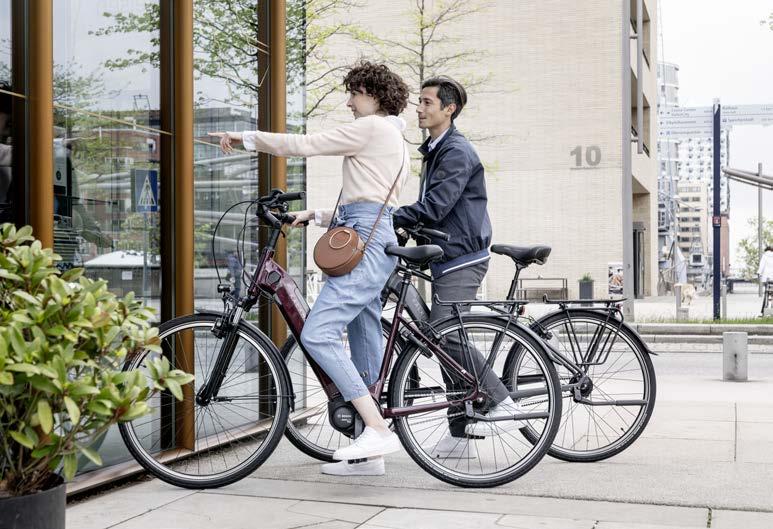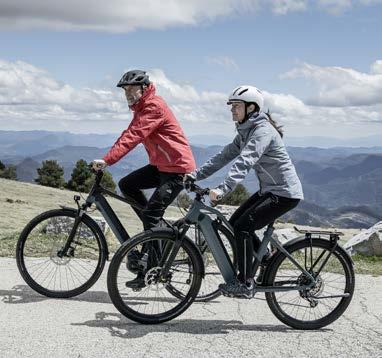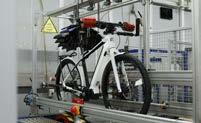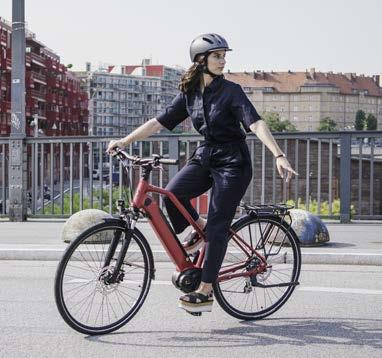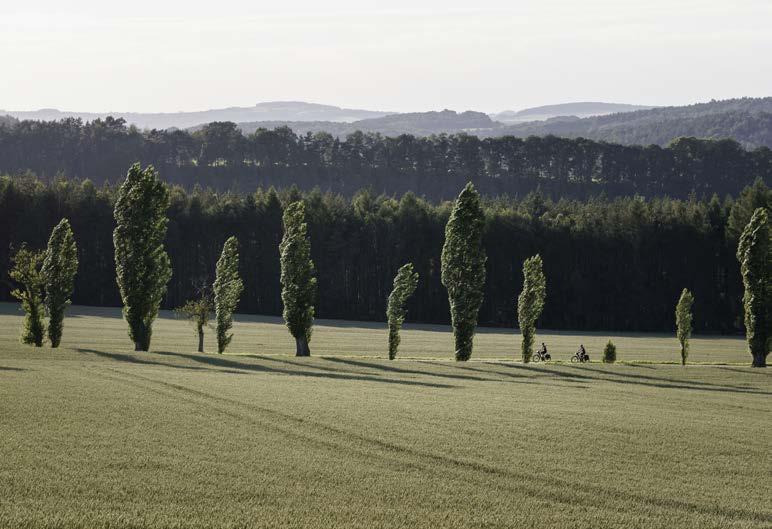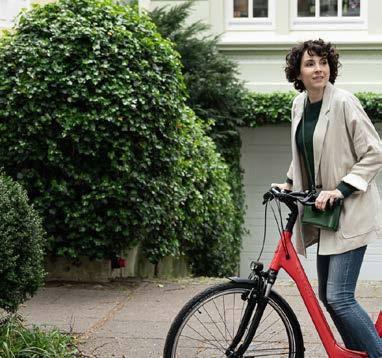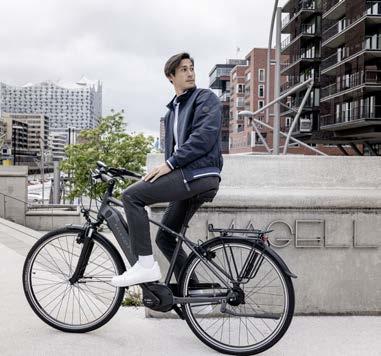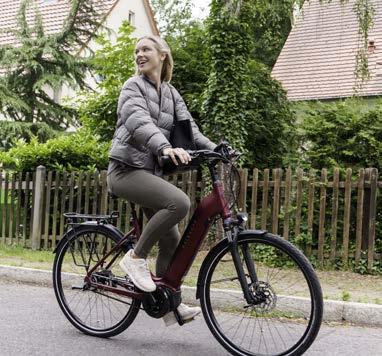
1 minute read
The future belongs to the bike
THE E-BIKE AS PART OF THE URBAN MOBILITY OF TOMORROW
Sitting in traffic jams is a thing of the past; the future belongs to the bike. You only need to take a look at cities to see that these are not just empty words. Whether it’s Birmingham or London– more and more people are getting on their bikes. More and more often e-bikes and co. are proving to be the perfect alternative to the car.
Advertisement
E-BIKES INSTEAD OF THE CAR
There are currently around 75.9 million bicycles in Germany (Source: The German Bike Association). For comparison: according to the Federal Motor Transport Authority, the number of registered passenger cars currently stands at 47.7 million vehicles. In the cities in particular, bikes have long since taken the lead. It’s no wonder: congested streets, no parking spaces – driving a car in the city is often associated with a high degree of stress. Commuters in particular are therefore increasingly turning to their bikes in urban terrain.
URBAN REVOLUTION
In politics, too, the bike has long since featured as an alternative means of transport. More and more cities are working on modern mobility solutions in which cyclists play a significant role. It is not without reason that studies prove that the e-bike can be the fastest means of transport for distances of up to ten kilometres. And special cycling fast lanes modelled on those in cycling countries such as Denmark or the Netherlands, which are currently under construction throughout Germany, should make it even more attractive for commuters to get on their bikes.
CYCLING IS ON TREND
A recently published survey by the YouGov market research institute shows the extent to which cycling is in vogue. The representative study showed that 18 per cent of consumers are using their bikes more often as a result of the coronavirus pandemic. The map service Google Maps even reports that requests for bike navigation have increased by 69 per cent since February. E-bikes will therefore play an even greater role in the traffic of the future than they have done so far. Kalkhoff is right at the centre of this urban revolution.

